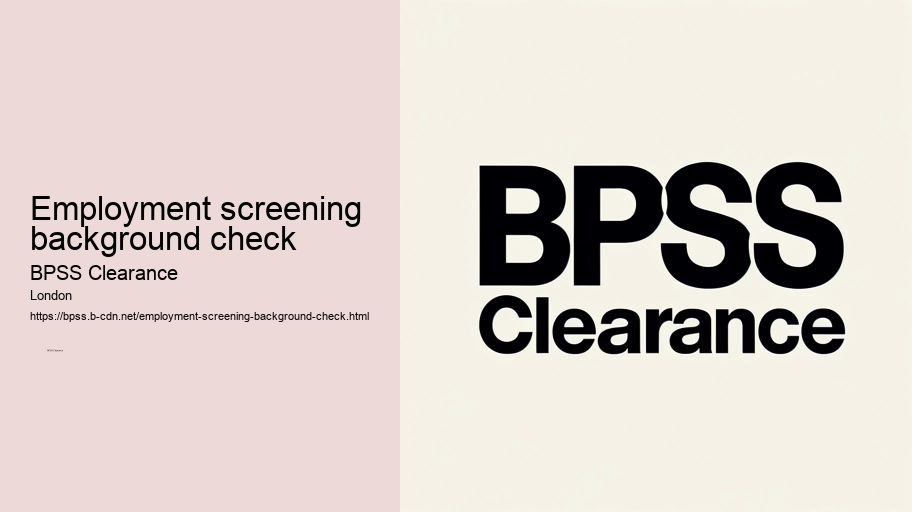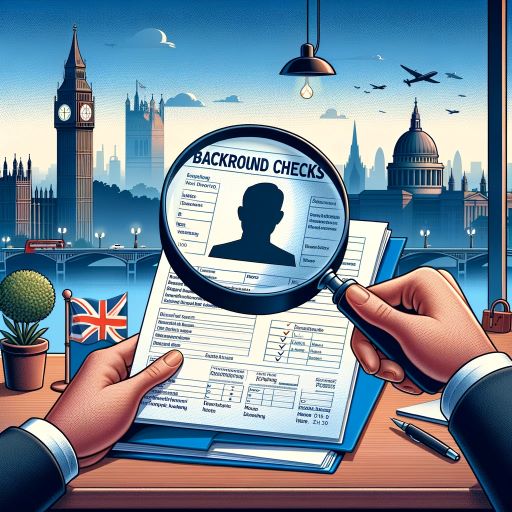
Digital technology also enhances the accuracy of the BPSS checks by reducing human error. Automated systems can cross-reference and validate information against multiple databases in real-time, ensuring that discrepancies are quickly identified and addressed. This leads to a more reliable vetting process and increases the security and trustworthiness of personnel.
Civil servants in various departments, especially those dealing with defense, foreign affairs, and treasury, need BPSS clearance. Their roles potentially expose them to sensitive information that could affect the country’s governance and international standing.
In conclusion, digital technology has profoundly impacted the BPSS process by making it faster, more accurate, and more secure. However, it also necessitates stringent measures to guard against potential cybersecurity risks. As technology evolves, it will continue to shape how Baseline Personnel Security Standard checks are conducted, promising even greater improvements in efficiency and security in the future.
2. Renewal is required after the 3-year period to maintain access to government assets.
Organizations that implement BPSS clearance as part of their security protocols benefit from a standardized approach to vetting that is recognized across various sectors. This standardization helps in maintaining a consistent security posture regardless of the specific nature or location of the job.
In contrast, DBS checks might need to be renewed more frequently, especially for positions involving regular contact with vulnerable groups. Some organizations require a new DBS check every three years or have policies for more frequent updates, reflecting the ongoing need to protect vulnerable populations.

Finally, while both BPSS and BS7858:2019 are crucial for their respective fields, the choice of which standard to apply depends on the specific needs of the organization and the nature of its work. BPSS is suitable for general employment in government-related roles requiring a basic level of security assurance. In contrast, BS7858:2019 is tailored for roles where employees handle sensitive information, work in secure environments, or where there is a high requirement for trust and security integrity. The detailed guidelines of BS7858:2019 make it indispensable for security-sensitive industries looking to uphold the highest standards of reliability and safety.
While the typical duration for a BPSS check ranges from two weeks to a month, it's important for both employers and candidates to be prepared for variations based on the factors discussed.
The application of digital tools in the BPSS process also brings about challenges, particularly concerning data protection and privacy. The use of digital platforms increases the risk of data breaches if not properly secured. Thus, it is imperative that organizations implementing digital BPSS processes adhere strictly to data protection laws and employ robust cybersecurity measures.
Baseline Personnel Security Standard (BPSS) checks are a fundamental pre-employment screening process in the United Kingdom, primarily designed for individuals who will be working in the government or with government contractors. Security profile assessment These checks serve as a first line of defense, ensuring that individuals employed in positions of trust are properly vetted to safeguard national security and the integrity of public services.
Procurement officers in government departments handle large-scale purchases and contracts that can have significant financial implications. BPSS clearance is essential to prevent corruption and ensure these roles are filled by individuals who are beyond reproach.
Ensuring your legal right to work in the UK is documented is an essential step in the BPSS clearance process. To successfully verify your national and immigration status, you must provide specific documentation. Here's what you need to know:Valid documents such as a passport or a Home Office document are required to prove your national and immigration status. Valid documents such as a passport or a Home Office document are required to prove your national and immigration status.Proper documentation plays an important role in confirming your eligibility and suitability to handle sensitive government information during the BPSS verification process.

To verify your employment history for BPSS clearance, make sure you have documentation such as PAYE records, HMRC tax records, payslips, P45, and P60. These documents are essential in demonstrating your work experience and financial records.
Employers who request BPSS checks must adhere to strict legal and ethical guidelines to ensure the process is conducted fairly and lawfully. One of the foremost rules is compliance with the Data Protection Act 2018, which governs the processing of personal data. This means that all personal information collected during the BPSS process must be handled in a way that is secure, confidential, and limited to purposes explicitly related to the check. Employers must ensure that information is not used discriminatorily and is stored only as long as necessary for security purposes.
4.
Enhanced technological advancements are shaping the future landscape of BPSS compliance, offering quicker and more accurate identity verification processes. As the industry evolves, here are some key aspects to ponder:
During the renewal process, you'll need to undergo re-verification of your right to work, identity, criminal records, and employment history to confirm continued eligibility. Failure to renew your BPSS clearance on time can lead to a lapse in access to sensitive information and government assets.
Applicants need to provide documents like a passport or driver's license to confirm their identity. Right to Work Confirmation: Legal documentation proving the right to work in the UK, such as a passport or Home Office document, is required. Criminal Records Check: Verification of any unspent criminal records is crucial for evaluating suitability for BPSS clearance. Employment History Validation A minimum of three years of employment history must be provided to complete the recruitment process.

BPSS checks involve several key components: identity verification, employment history check, criminal record check, and nationality and immigration status check. Each of these areas is carefully examined to ensure that the individual does not pose a security risk.
Transportation officials, especially those involved in overseeing or managing public transport security, require BPSS clearance due to the potential risks associated with transportation infrastructure and mass transit systems.
By verifying your identity, legal right to work status, and employment history accuracy, organizations can establish a secure work environment and prevent unauthorized access to data. BPSS clearance is essential for individuals with access to government assets and sensitive information, as it confirms the honesty and integrity required for specific roles.
